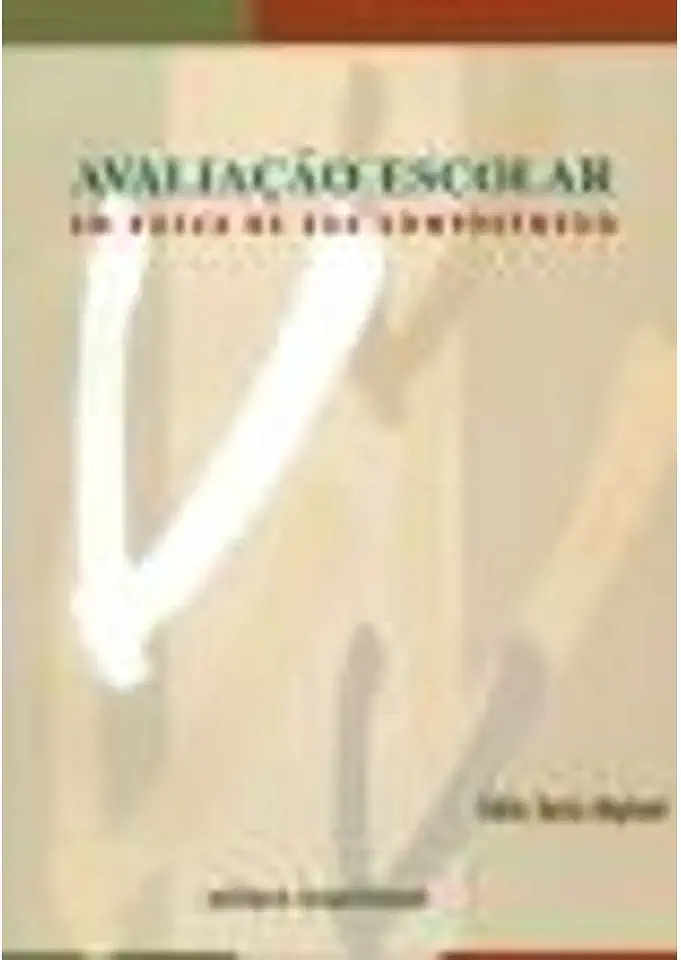
School Assessment - In Search of Its Understanding - Hélia Sonia Raphael
School Assessment: In Search of Its Understanding
Introduction
In her book, "School Assessment: In Search of Its Understanding," Hélia Sonia Raphael delves into the complex and multifaceted world of school assessment. With a focus on the Brazilian educational context, Raphael provides a comprehensive analysis of the purposes, practices, and challenges of assessment in schools. Through a combination of theoretical insights and empirical research, the book offers a unique perspective on the role of assessment in shaping educational practices and student learning.
Assessment: A Multifaceted Concept
Raphael begins by exploring the diverse meanings and purposes of assessment in schools. She argues that assessment is not merely a tool for measuring student achievement, but rather a complex process that involves multiple stakeholders, diverse contexts, and a range of purposes. Drawing on various theoretical frameworks, Raphael highlights the importance of understanding assessment as a social practice that is embedded in the cultural, historical, and political contexts of education.
Assessment Practices in Brazilian Schools
The book provides a detailed examination of assessment practices in Brazilian schools. Raphael draws on extensive research to present a nuanced understanding of the different types of assessments used, the purposes they serve, and the challenges faced by teachers and students in the assessment process. She discusses the strengths and limitations of traditional assessment methods, such as standardized tests, and explores alternative assessment approaches that focus on formative assessment and authentic learning.
The Impact of Assessment on Teaching and Learning
Raphael emphasizes the profound impact of assessment on teaching and learning. She argues that assessment practices can shape what students learn, how they learn, and the ways in which teachers approach their teaching. Drawing on research evidence, Raphael demonstrates how assessment can influence student motivation, self-concept, and academic achievement. She also highlights the potential of assessment to promote equity and social justice in education.
Challenges and Future Directions
Raphael concludes the book by discussing the challenges and future directions of school assessment. She identifies several areas where improvements are needed, including the development of more authentic and meaningful assessment methods, the reduction of assessment-related stress, and the promotion of assessment literacy among teachers and students. Raphael also emphasizes the importance of collaboration and dialogue among stakeholders in order to create a more comprehensive and effective assessment system.
Conclusion
"School Assessment: In Search of Its Understanding" is a valuable resource for educators, researchers, and policymakers interested in understanding the role of assessment in schools. Raphael's comprehensive analysis of assessment practices in the Brazilian context provides insights that are relevant to educational systems around the world. The book offers a compelling argument for rethinking assessment as a means to enhance teaching and learning, promote equity, and create a more just and effective education system.